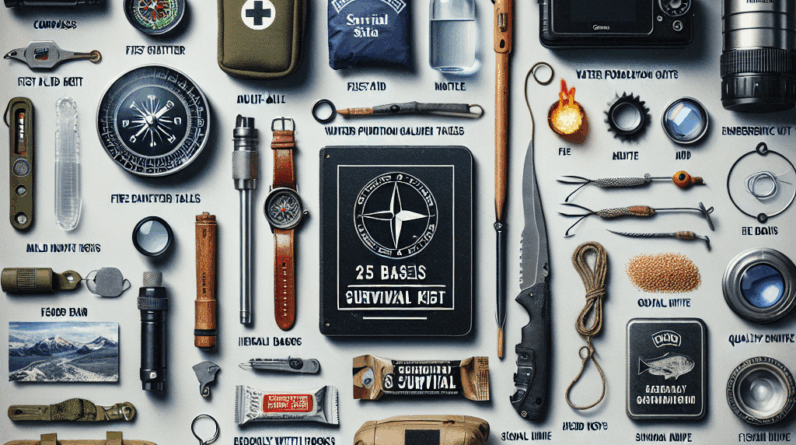Dealing with wildlife during outdoor activities can sometimes lead to unexpected snake or insect bites. Knowing how to handle these situations can be crucial for your safety and well-being. Here’s a detailed guide to help you manage and treat bites when you’re far from medical help.
Recognizing the Signs of Bites
# Understanding Snake Bites
First and foremost, recognizing a snake bite is crucial and can be quite startling. From personal encounters in the wilderness, key indicators are swelling at the site and unusual coloration. Snake bites often appear as two puncture wounds, although they might also resemble scratches, making vigilance key.
Other symptoms include a sudden sharp pain, possibly escalating to throbbing. Redness and nausea are also common indicators of a snake bite. It’s important to recognize these signs quickly and respond promptly.
Identifying whether the snake was venomous is critical. Being knowledgeable about the local snake species can be life-saving. Always carry a reference guide or app when you’re exploring unfamiliar territories.
# Identifying Insect Bites
Insect bites are often less conspicuous, starting with itching or a small red bump. These bites can escalate from minor irritations to severe reactions, particularly with bee and wasp stings. It’s crucial to be alert for any signs of an allergic reaction, such as hives or difficulty breathing.
Immediate action should be taken if swelling persists or breathing difficulties develop. Don’t hesitate to seek help if the reaction seems severe, as timely intervention is key to safety.
When to Seek Help
Even minor bites require attention. I recall a bite during a hike that seemed minor until the pain intensified. It’s important to recognize when you need help and to act on it.
Symptoms like severe pain, bleeding, or signs of spreading venom require immediate medical attention. Always carry a navigation tool like a compass or GPS to find your way to safety quickly.
Immediate First Aid Steps
# For Snake Bites
The initial reaction might be panic, but staying calm is essential. Keep the bitten area immobile to prevent the venom from spreading. Remove any constricting clothing or jewelry to accommodate swelling.
Contact emergency services immediately and keep the bitten area below heart level. Ignore myths such as sucking out venom, as they can worsen the situation.
# For Insect Bites
Begin by cleaning the bite with soap and water. Use antiseptic wipes if available. Applying a cold compress can help reduce swelling and alleviate irritation, but remember to limit each application to about 10-15 minutes.
If an allergic reaction develops, seek medical help without delay. Even minor insect bites can escalate into major concerns.
# Monitoring Symptoms
After addressing the immediate concerns, continue to monitor the bite for any changes in color, size, or pain. Documenting the time of the bite and any subsequent symptoms can be crucial information for medical personnel.
Trust your instincts and seek medical advice if you feel something is amiss.
Aftercare and Recovery
# Rest and Recovery
Post-bite, it’s essential to rest and allow your body to heal. Staying hydrated and consulting a healthcare professional for follow-up care can prevent complications.
Continue to monitor the bite for signs of infection or worsening symptoms, and seek help if conditions deteriorate.
# Taking Care of Your Mental Health
A bite can be traumatic. Taking time off from outdoor activities might be necessary to recover mentally. Talking about your experiences can ease stress and help you plan safer future outings.
Practice relaxation techniques to manage stress from unexpected wildlife encounters.
# Staying Prepared for Future Adventures
Equip yourself with essential first-aid supplies for future excursions. Proper attire and knowledge of local wildlife can prevent most bites. Preparation enhances safety and enjoyment of outdoor activities.
FAQ
# 1. What should I do if I get bitten by a snake?
Keep calm, immobilize the bitten area, remove any constrictive items, and seek immediate medical attention.
# 2. How can I tell if an insect bite is serious?
Look for severe swelling, redness, or signs of an allergic reaction like hives or breathing difficulties. If these occur, call emergency services right away.
# 3. Is it safe to suck out snake venom?
No, this is a harmful myth. Always seek professional medical assistance instead of using home remedies.
# 4. What can I do to relieve itching from insect bites?
Clean the area and apply a cold compress. Over-the-counter creams can also be effective in reducing itchiness.
# 5. How can I prevent snake and insect bites while hiking?
Wear protective clothing, stay on designated trails, and educate yourself about the local wildlife to minimize risks.



